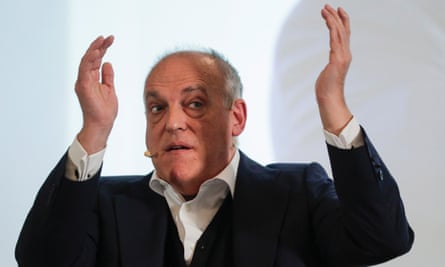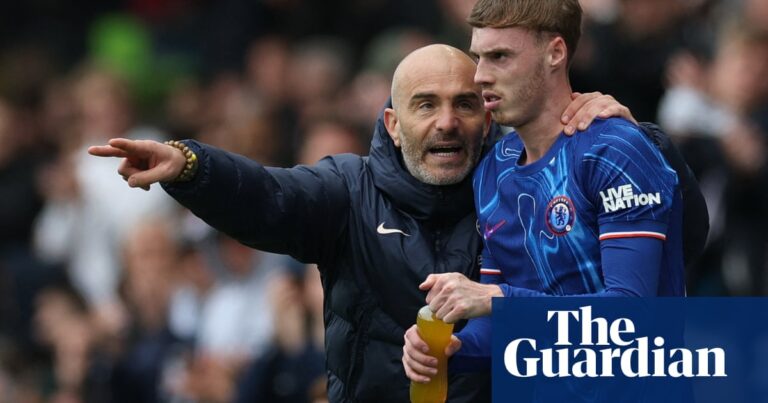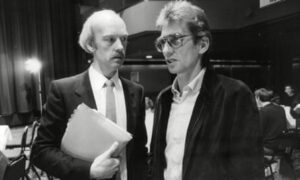What are the accusations against Manchester City?
The Premier League has charged the champions with more than 100 breaches of competition rules between the seasons 2009-10 and 2022-23. The charges cover four areas: a failure to give “a true and fair view of the club’s financial position”; a failure to “include full details” of player and manager remuneration; breaches of national and continental financial fair play regulations; and a failure to “cooperate with, and assist, the Premier League in its investigations”. The counts will be heard by a three-person independent commission, starting on Monday, in what is thought to be a London location.
Do we have specifics?
The Premier League has published only an extended charge sheet, with no details. The timeframes, however, suggest the charges line up with claims already in the public domain. First, that City inflated the value of sponsorship deals as a means of channelling more money from their owners into the club. Second, that secret payments were made to the manager Roberto Mancini and to the then agent of Yaya Touré. Third, that these acts left the club contravening financial rules. Fourth, that when the Premier League sought to investigate the claims, City obstructed it. City have always denied any wrongdoing.
Why do the charges matter?
Because of their seismic nature and implications, whatever the verdict. Because they are unprecedented in the domestic game. And because of City’s dominance. In the 14 seasons covered by the charges, City won seven Premier League titles, six League Cups, three FA Cups and the Champions League. Since then they have won another Premier League, the Uefa Super Cup and the Fifa Club World Cup. They have played in the Champions League every season from 2011-12. This has driven the global pre‑eminence of the Premier League and increasing transfer fees (City’s squad is worth £1bn-plus). There are arguments, too, that it has affected competitive balance here and across Europe, led to the near-development of a breakaway Super League (of which City were a part) and quickened the need for independent regulation of English football. In February 2023 when the charges were brought the La Liga president, Javier Tebas, called the English top flight a “doped market”. On Friday, he told Mundo Deportivo: “I have spoken with many Premier League clubs and most of them understand that City should be sanctioned.” If City are judged to have found success while breaking the rules, the game will come under greater scrutiny.

What happens next?
Under Premier League instruction, Murray Rosen KC has selected three people to form the independent commission that will hear the charges, with one member of this panel required to be a financial expert. The hearings will be conducted privately and, though there is no formal timeframe, legal experts believe it will take a minimum of two months. When the commission publishes its verdict, either side can go to an appeals panel and, after this, arbitration. If all fails, either could attempt to find an argument to take to the high court. Under the rules of association of the Premier League there is no opportunity for either party to go to the court of arbitration for sport (Cas) in Switzerland.
If guilty, what could the punishment be?
According to rule W.51 in the Premier League handbook, a commission has the ability to levy a wide range of sanctions against any club found to have broken the rules. These include fines, the docking of points and suspension, or even expulsion, from the competition. In fact, subclause W.51.7 states that the commission can “impose upon the respondent any combination of the foregoing or such other penalty as it shall think fit”. That even leaves open the possibility of City being stripped of their titles.
after newsletter promotion
What do City say?
The champions are bullish. On the record the club says it “welcomes the review” and the opportunity to “impartially consider the comprehensive body of irrefutable evidence that exists in support of its position”. Club sources also say City were not informed of the charges before they were published online. Finally, they argue that the club has been under investigation for breaching financial rules before, and were cleared.
Haven’t we been here with Uefa?
In 2020 Uefa suspended City from the Champions League for two years for “overstating its sponsorship revenue in its accounts” between 2012 and 2016, part of the same period covered by the Premier League’s charges. However, that sanction was overturned on appeal by Cas. In its ruling Cas found that a number of the claims brought by Uefa had fallen outside a five-year “time bar” which prevented historical charges. But the tribunal also argued that one key charge over payments relating to sponsorship by Etihad Airlines was “not established”. The panel said Uefa had submitted insufficient evidence and that, if its case had been correct, then City employees who had given testimony to Cas would have had to have been lying.
Is this the result of ‘Football Leaks’?
Uefa found City in breach of its financial fair play regulations in 2014 but reached a settlement under which City paid a €20m (£17m) fine and submitted reduced squads to the Champions League. The revisiting of alleged irregularities came after the document hack known as “Football Leaks” in 2015 exposed what appear to be official documents and email communication from inside City, alongside a number of other football organisations. These documents are understood to also have prompted the Premier League’s investigation, a four-year process which has brought these charges. City have previously described Football Leaks as an “orchestrated campaign” and part of “an endless attempt to damage us”.
Source: theguardian.com


















